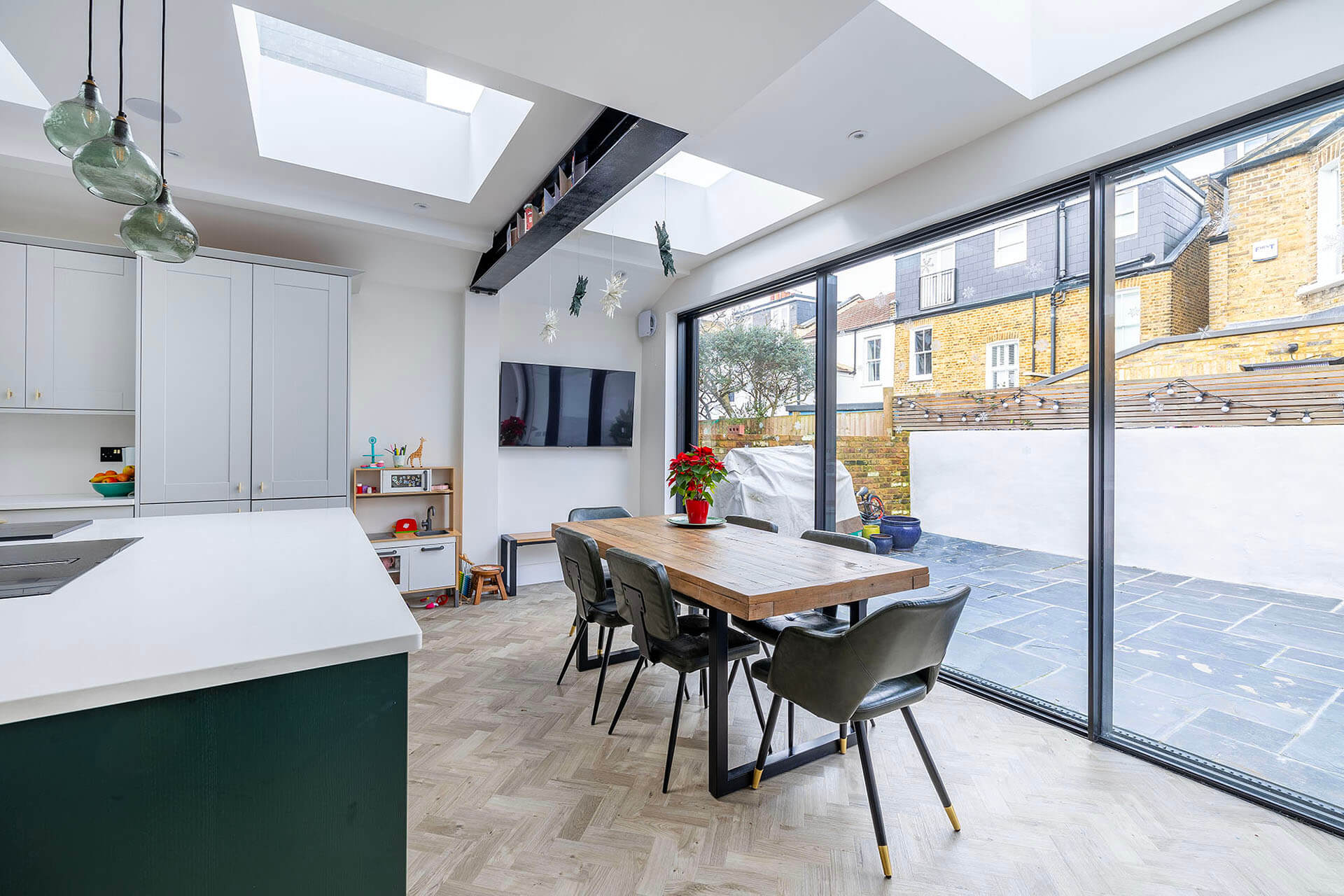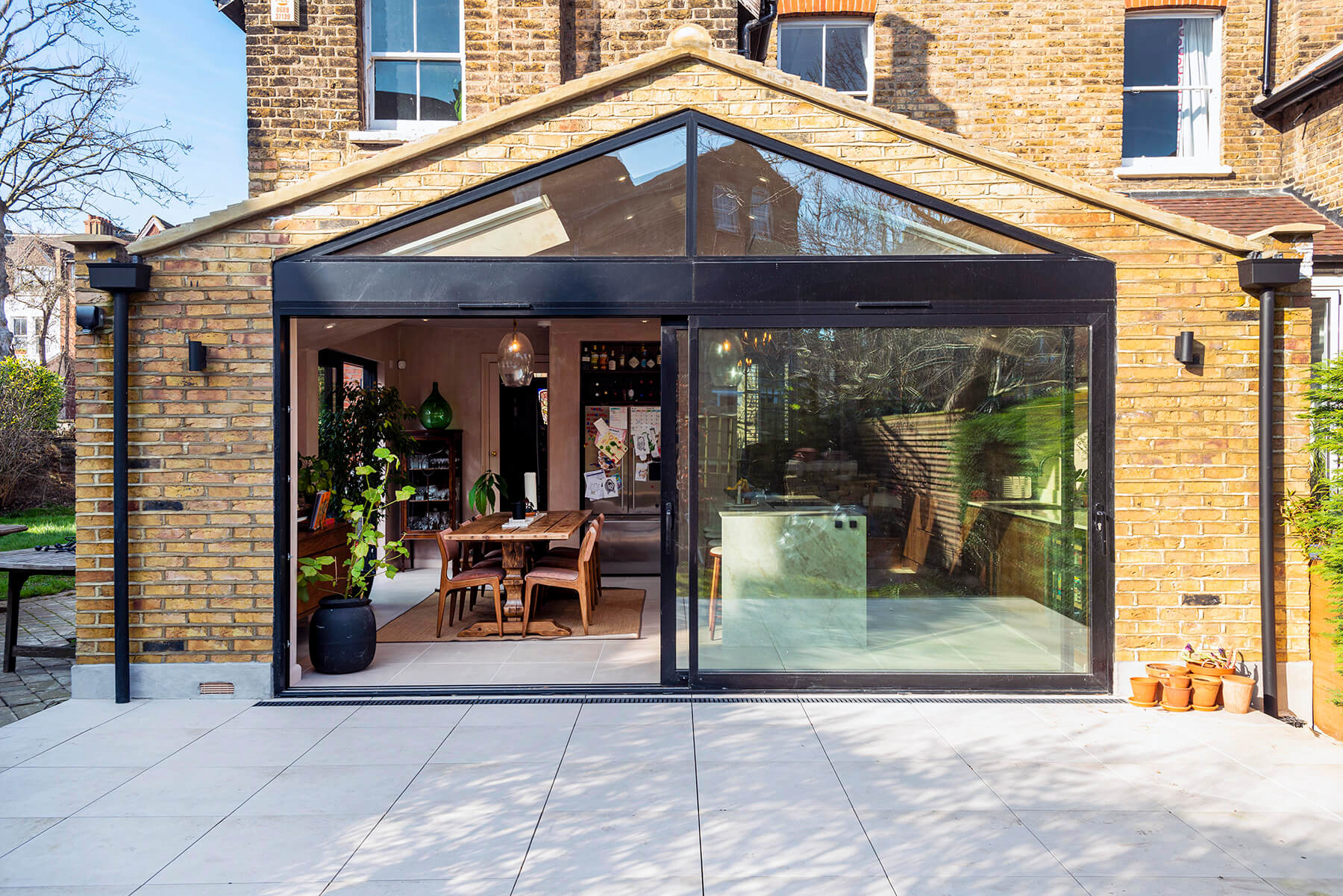Budgeting for a Loft Conversion: Costs and Considerations
- 20-10-23
- min read
- Blog
Homeowners keen to make a savvy investment should seriously consider loft conversions.
With increasing property prices and an increasing demand for additional living space, a loft conversion offers a strategic way to enhance your home’s value.
So, how do you budget for loft conversions, and how do the various costs break down?
This guide explores various types of loft conversions, potential ROIs, and cost breakdowns – so you can make an informed decision.
Let’s first assess the main types of loft conversions and their potential returns expressed as ROI.
We’ll use an ROI of 50%, which is a more conservative (yet still excellent) estimate compared to the 70% cited by Zopa’s research. This is only a rough estimate, and actual ROIs vary widely.
None of the advice below constitutes financial advice, and the costs quoted are for basic conversions only.
Among the most straightforward and least invasive types of loft conversions, Velux or rooflight conversions integrate windows directly into the existing roofline.
By doing so, they significantly amplify natural light, ambience, and general aesthetics in the loft without necessitating any alterations to the fundamental structure of your home.
Cost Analysis
The ballpark expenditure for a basic Velux loft conversion is within the range of £20,000 to £40,000 for a basic Velux conversion.
ROI and Profit Breakdown
With an approximate 50% ROI for Velux conversions, a £25,000 investment can boost your property value to approximately £37,500.
This results in a clean profit of £12,500 in theory.
Dormer conversions are characteristically more elaborate, extending outward from the original slope of your existing roof.
This construction method provides substantial extra headroom and floor space, often making it possible to include amenities like en-suite bathrooms.
Cost Analysis
Generally, basic Dormer conversions are priced between £30,000 and £50,000. The cost can vary based on the size and specific design features, including French doors or Juliet balconies.
ROI and Profit Breakdown
With a standard 50% ROI, a £40,000 investment in a Dormer conversion could propel your property value up to £60,000.
That's a potential profit of £20,000, which is quite promising when considering the newly created space's added functionality and appeal.
The Mansard conversion is often considered the most complex and grandiose type of loft conversion.
It involves modifying the roof's slope to almost vertical, optimising space to the maximum. Mansard conversions are particularly prevalent in urban environments, where maximising space is essential.
Above: An exceptionally large loft conversion by Design Team.
Cost Analysis
Mansard conversions are significantly more expensive, usually starting at £50,000 and extending upwards based on the complexity and materials involved.
ROI and Profit Breakdown
Applying a 50% ROI calculation, a £60,000 investment in a Mansard conversion is expected to raise your property's value to about £90,000.
This would leave you with a substantial profit of £30,000, affirming the Mansard conversion as a robust financial investment despite its higher initial costs.
Hip-to-gable conversions are specialised for homes with sloping or "hipped" roofs.
They transform these slopes into a vertical wall, substantially expanding internal loft space. This conversion type is ideal for semi-detached or end-of-terrace homes.
Cost Analysis
The price range for a hip-to-gable conversion generally falls between £40,000 and £60,000, depending on various factors like materials and labour costs.
ROI and Profit Breakdown
Considering a 50% ROI, a £50,000 investment in a hip-to-gable conversion can escalate your property value to £75,000.
Consequently, you could be looking at a robust profit of £25,000.
So, considering the above ballpark figures for loft conversions, how do all the individual costs break down?
Below is an approximate guide to loft conversion costs. Of course, not all costs apply to all conversions.
Structural Work
One of the most critical parts of a loft conversion, the structural work entails reinforcing the loft's floor, creating walls, and installing windows.
Reinforcing the joists is essential to ensure the floor can support additional weight. This might require using steel beams and specialised construction techniques.
Load-bearing walls may need to be erected or modified to transfer the load safely to the foundation.
Depending on the complexity, this can be a significant cost factor, often ranging from £10,000 to £20,000. Higher costs apply to more complex conversions and roofs that require extra work.
Insulation
Thermal insulation is essential to lofts, which are exposed relatively directly to the elements compared to interior rooms.
Insulation costs can vary between £2,000 and £4,000 depending on the materials and techniques used.
Roof Alterations
If your existing roof structure isn't conducive to a loft conversion, you may need to factor in the cost of roof alterations.
This could range from small modifications to complete replacements. In some instances, a flat roof may need to be converted to a pitched roof to provide the necessary space and structural integrity.
Depending on the scale of changes, you could be looking at £5,000 to £15,000.
Planning Permission
While many loft conversions are considered "Permitted Development" and don't require planning permission, exceptions exist, particularly for listed buildings or homes in conservation areas.
Moreover, aside from size and volume, the more work involving your roof and external walls, the more likely you’ll need Planning Permission. Features such as balconies will also necessitate Planning Permission.
Above: Balconies make an excellent addition to loft conversions but require Planning Permission.
Securing Planning Permission can cost upwards of £500. Design Team will boost your odds of succeeding with your application.
Architect and Engineer Fees
Hiring an architect is often recommended for a custom loft conversion that meets all your needs and aesthetic preferences.
They will draft plans, which may require an engineer's approval to ensure the building can handle the structural changes.
These fees can range from £1,000 for simpler designs to over £5,000 for more intricate or large-scale projects.
Building Regulations Approval
All loft conversions need to meet specific building codes, so you'll have to secure approval from Building Control.
Often, this involves hiring a surveyor to check your plans and visit on-site after the work is complete. Design Team includes this as part of our design packages.
Electrical Work
This includes installing new electrical outlets, lighting fixtures and potentially even electric heating.
Based on the complexity and the number of electrical sockets needed, this could cost between £1,500 and £3,000.
Plumbing
Plumbing will be another significant cost if your new loft includes a bathroom or kitchen.
Installing new pipes, fixtures, and potentially a new boiler or water heater could easily add £3,000 to £7,000 to your budget.
If your boiler’s feed tank is installed in the loft, it’s highly likely you’ll need to alter your heating system.
Flooring
Whether you choose hardwood, carpet, or laminate, flooring can impact your budget considerably.
Prices can vary significantly, from £20 per square meter for budget options to over £100 per square meter for premium materials, not including installation costs.
Painting and Decorating
Once the construction is complete, you'll want to make the space your own – that’s the fun bit.
Professional painting can cost around £8 to £12 per square metre, without considering the price of the paint itself or any decorative elements like wallpaper or specialised finishes.
Skylights and Windows
Natural light can make or break the atmosphere of a loft.
The cost of installing skylights or dormer windows can vary significantly, but generally speaking, a standard skylight can start from around £500, excluding installation.
For something more elaborate, like a larger dormer window, you could look at costs upwards of £2,000 to £4,000.
Above: Skylight window loft conversion by Design Team.
Built-In Storage
Lofts often have unique shapes and nooks, which often require custom storage.
Built-in wardrobes, shelving, or even a mini-library could add anywhere from £1,000 to £3,000, depending on the complexity and materials used.
Staircase
If your loft conversion is more than just an attic renovation, you'll need a sturdy, comfortable staircase that matches the rest of your home's design.
A simple, straight-flight staircase can cost as little as £800, but if you're looking for something more complex like a spiral staircase, prices can easily exceed £3,000.
Fire Safety
Regulations may require installing fire doors and an integrated smoke alarm system.
Depending on the number of fire-resistant doors and alarms you need and the cost of wiring them into your home's electrical system, this could add between £500 and £2,000 to your budget.
Ventilation and Damp Proofing
Ensuring good air circulation is crucial to avoid damp and mould problems – which is also vital for Building Regulations.
Installing passive vents or an active ventilation system might be necessary, adding between £200 and £1,000 to your costs.
Contingency Fund
It's prudent to set aside a contingency fund to cover unexpected costs. This could be around 10 to 15% of your total budget.
Unexpected issues like wiring complications, structural weaknesses discovered during construction, or even changes in your design preferences can lead to cost overruns.
Cleanup and Waste Disposal
Don’t overlook the cost of removing construction waste, which can add up quickly.
Hiring a skip can cost anywhere from £200 to £400, depending on the size you need, and you may need multiple rounds of waste removal.
Contractor Availability
The season you choose to do your conversion can affect labour costs. Peak construction seasons could see you paying a premium for skilled labour.
Delays
Time is money, as they say, and construction delays can lead to increased costs, especially if you have to extend equipment rental or a skip or face penalties from your local council for exceeding an agreed-upon construction timeframe.
Loft conversions are among the best home improvement investments anyone can make.
With ROIs up to 70% according to some research, expanding your home with a loft conversion can pay you handsomely in time.
This guide covers the approximate costs of loft conversions and how these are calculated.
Design Team will help you create your dream loft conversion while remaining mindful of budgeting and costs.
Contact us today to find out how we can help you.
Book a free Design Consultation with one of our team to discuss your project in more detail.
.jpg)
11-11-24 6

10-11-24 6

25-10-24 6